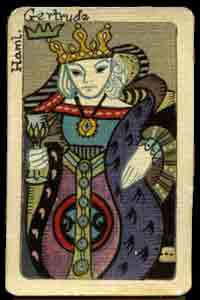Thursday, November 02, 2006
"Hacking Democracy" Has An Industry Critic

Diebold doth protest too much, methinks.
Diebold Inc. insisted that cable network HBO cancel a documentary that questions the integrity of its voting machines, calling the program inaccurate and unfair.
The program, "Hacking Democracy," is scheduled to debut Thursday (today), five days before the 2006 U.S. midterm elections. The film claims that Diebold voting machines aren't tamper-proof and can be manipulated to change voting results.
"Hacking Democracy" is "replete with material examples of inaccurate reporting," Diebold Election System President David Byrd said in a letter to HBO President and Chief Executive Chris Albrecht posted on Diebold's Web site. Short of pulling the film, Monday's letter asks for disclaimers to be aired and for HBO to post Diebold's response on its Web site.
According to Byrd's letter, inaccuracies in the film include the assertion that Diebold, whose election systems unit is based in Allen, Texas, tabulated more than 40 percent of the votes cast in the 2000 presidential election.
The letter says Diebold wasn't in the electronic voting business in 2000, when disputes over ballots in Florida delayed President Bush's victory for more than a month and raised questions about the reliability of electronic voting machines.
"We stand by the film," said Jeff Cusson, a spokesman for HBO, which is a unit of Time Warner Inc.
"We have no intention of withdrawing it from our schedule. It appears that the film Diebold is responding to is not the film HBO is airing."
David Bear, a spokesman for Diebold, said the company bought another firm, Global Elections, in 2002 that served about 8 percent of balloting in 2000, including voters in Florida. The company, which hasn't seen the film, based its complaints on material from the HBO Web site, Bear said.
This is Diebold's second recent defense of its system. On Sept. 26, Byrd wrote to Jann Wenner, editor and publisher of Rolling Stone, saying a story written by Robert F. Kennedy Jr., "Will the Next Election Be Hacked?" was "error-riddled" and that readers "deserve a better researched and reported article."
The HBO documentary is based on the work of Bev Harris, the Renton woman who founded BlackBoxVoting.org, which monitors election accuracy. In 2004 the attorney general of California took up a whistle-blower claim filed by Harris against Diebold and settled with the company for $2.6 million in December.


